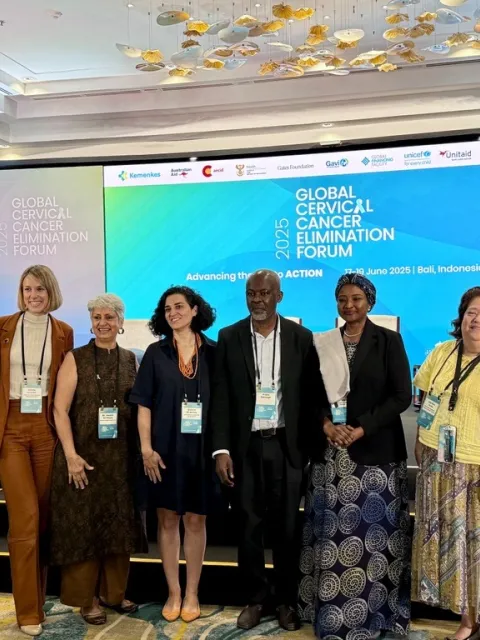WHA – what about the resolution on the elimination of cervical cancer?
With the 73rd World Health Assembly understandably focused on COVID-19, what happened to other resolutions such as the one on the elimination of cervical cancer?

The 73rd WHA was the first-ever World Health Assembly to be held virtually and met with a reduced agenda. Like many debates and conferences this year, it was dominated by the coronavirus pandemic. However, a solution was found for the other topics and resolutions that were meant to be discussed, in particular the one on the elimination of cervical cancer.
In February, the WHO Executive Board had recommended to the 73rd WHA the adoption of the Global Strategy to accelerate the elimination of cervical cancer as a public health problem and urged its implementation.
As numerous Member States already agreed to adopt the strategy and reached consensus on the wording of the resolution, it was supposed to be processed as part of the 73rd WHA. Due to the focus on country responses to COVID-19, however, resolutions prepared by Member States that were not discussed during the virtual Assembly will enter a silence procedure. This means that a written process will be initiated. All Member States will have the opportunity to comment; if needed, further iterations will be circulated to seek consensus but there will be no virtual or in-person debate.
“We anticipate that the cervical cancer resolution will move swiftly through the silence procedure,” said Dr Julie Torode, UICC Director of Special Projects. “The UICC team will advise its members as soon as we hear that the silence procedure has been completed. We look forward to building up renewed momentum towards the end of this year and into 2021. The January awareness week and World Cancer Day on 4th February will be ideal opportunities to urge governments to restate their political commitments to elimination and take national action towards the 2030 targets.”
In the meantime, it remains important to include the views of patients and those of prevention and cancer management services in the development of all information materials, especially standards and guidelines.
In support of the WHO guideline on cervical cancer screening and treatment of precancerous lesions, UICC will organise a webinar at the end of June as part of its new Virtual Dialogues. We look forward to keeping you informed on how you can contribute and bring women’s views and perspectives to shape the new WHO guideline, scheduled for the end of 2020.
Download the digest, What the COVID-19 resolution means for cancer.
Last update
Thursday 25 June 2020
